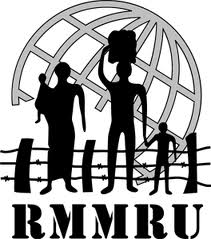“One village above water, another below” – Md. Saiful Islam (Sourav)
I got the chance to work for RMMRU and through this organization, I was able to visit many places that I have never been before. I visited these places for my research work which allowed me to visit many rural places. This was my first opportunity to learn first-hand about nature climate change and life in these regions. I was surprised when I saw village people surviving day by day for their livelihood or family. Two villages were divided by a road. One village is still under water and another is more developed. That village is still underwater because of the environmental situation and its...
Read More“Different gender norms surprise” by Nazia Bushra
The thing I want to share is that this was a difficult journey. Though the roads were muddy and slippery, we had to go and conduct our research. In some areas, the respondents were quite conservative and didn’t want to speak with my male partner, preferring to speak with someone of the same gender. In that case, I went to take her into a separate room and took all the information we were seeking. In addition, migration and adaptation techniques are not the same within a locality as well as within any family. In Bagerchat, the salinity intrusion and cyclones are the main obstacles. For these...
Read More“Life depends on the tides” Md. Nasif Alam
I got some real life experience which I could not get anywhere else. I saw how people lead their lives in coastal regions of Bangladesh. Their lives depend on the low and high tides which really surprised me. Near Cox’s Bazaar, most people we met were fishermen. Their lives depend on the rivers. Both the sea and the rivers are crucial for their survival. Natural calamities have ruined their livelihoods year after year. In Maheshkhali, Gorokghata area was very damaged from the Sidr cyclone. A large area was totally destroyed which had still not be remediated. People are in real need in these...
Read More“Coastal people well adapted to environment” by Tamanna Nazneen
I’ve had the great opportunity to work as a Field Research Assistant with the DECCMA project. Under this project, I have had the opportunity to travel to several coastal districts in Bangladesh to perform field work. I have achieved a lot of experience during the field work. I have observed the lives of climate refugees very closely. In Chan fashion, Bhola district, I came to know a form of observation that was new to me. The coastal peoples have become very accustomed and adapted to the changing tides. I interviewed several families who lived along the riverbank. Some live within ten to...
Read More“Char Lakshmi cannot address problems alone” by Tanjim Uddin
In the DECCMA project, I worked as a Field Research Assistant in thirty different unions and wards across six districts over the past seven months. Among those Char Lakshmi is one of the most hazardous areas as it is located beside the Meghna River in Ramgati Upazila of Lashmipur district.The people of the village are affected strongly by erosion in the area. They lost many of their valuables to the Meghna River about a decade ago. At first, they took shelter on different high grounds. Many migrated to other places, losing their homes and properties. Later, UNO and local representatives of...
Read MoreA Poster on “A Scenario of Migration of the GBM Delta, Bangladesh”
This poster presents the migration scenario of the GBM Delta of Bangladesh. A study of 8713households in 50 climate change hot spots of Bangladesh found that 34% (2962) of thehouseholdsof 14 districts ismigrant households. Of these, almost 11% (949) are international migrant households, and 23% (2013) are internal migrant households, which is almost two or three times greater than existing estimates from earlier studies(HIES, 2010; Sharma and Zaman, 2009; Hossain, Kazal and Ahmed, 2013). This study is conducted under DECCMA Project of RMMRU which is coordinated by Institute of Water and...
Read More


